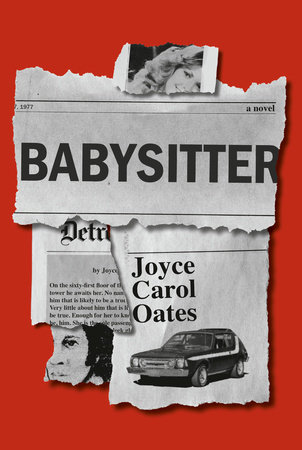⋆⋆⋆½
Thank you to NetGalley and Knopf for allowing me to read this ARC!
Content Warning: death (including that of a child), murder, violence, rape (on-page), homophobia, racism, racist slurs, homophobic slurs, victim-blaming, suicidal ideation, child abuse (physical, emotional and sexual).
Detroit, 1977. Hannah Jarrett lives a privileged life; the wife of a wealthy man, the mother of two perfect children, the co-chair of many esteemed fundraisers and charity events. In the midst of her outwardly perfect -- if boring -- life, Hannah suddenly and unexpectedly meets a man who she is instantly drawn to. Calling himself only Y.K., Hannah falls headfirst into an affair that will change the course of her life forever. In another part of Detroit, there's Mikey, connected not only to Y.K., but to Babysitter, the child killer stalking the streets. As Hannah grows more and more suspicious of Y.K., questioning whether he is implicated in the Babysitter killings, everyone -- including Hannah's children and her husband -- will be drawn into the turmoil...
Joyce Carol Oates is adept at crafting stories centered around darkness. Of the several other books I've read by her, they were all similarly filled with themes of lust, hatred, and murder, and while some of them were more successful than others, I knew going into Babysitter that this type of tale was in good hands. Her stories often play with subversion, subterfuge, and nontraditional forms of writing, and so those who are not familiar with her style may find it a bit strange at first -- even I, having not read anything by her in a while, found it a bit jarring at first. However, the longer I read, the more compulsively I found myself consuming this, eager to know what frightening turn the plot might take.
Hannah Jarrett is our (main) protagonist; I would describe her as being squarely in the middle of the events that take place here, as well as the characters who surround her. She, both narratively and as a character, provides a sort of stepping stone, an opportunity for the reader to see themselves in the story. However, like most of Oates's protagonists, she is not likable on principle; she is complex, deeply flawed, and very, very naïve. I appreciated Oates's efforts to show us that while Hannah thinks of herself as being "rational" and "nonracist," she nonetheless continuously insults her children's Filipina nanny, Ismelda, with microaggressions. She projects her insecurities and fears onto Ismelda, the "other," just like her husband, Wes, does, though his is more outwardly aggressive, more "male."
Racism is a big theme in this book, as is fitting, I think, for a novel that takes place in 1970s' Detroit. Present, too, as in all of Oates's novels, are the questions of womanhood, femininity, and how motherhood changes women (for better and worse). Some of her attempts at dissecting racism are better than others but, overall, I think the message here is well-conveyed -- that racism is insidious in its many forms, and that white women perpetuate racism in ways different than their male counterparts (but that all are equally reprehensible). Her discussions of misogyny are incisive and clever, as always.
Now, onto why it didn't quite get the full four stars from me... my main complaint is that, sometimes, I struggled to truly "click" with the story or its characters. Mistakenly, I thought that this novel would revolve mainly around the Babysitter killer, also known as the Oakland County Child Killer, who I do have some prior knowledge of. Instead, this deals mostly with people who are connected to him, both tangentially and more closely, which I found a touch disappointing. The child killings serve more as a backdrop for what's going on in Hannah's life, as well as exacerbating her already heightened fears as a mother. It's important that I mention that while this book does deal with many dark, horrible things, sometimes in graphic detail, I never felt as if Oates was exploiting the real life tragedies that Babysitter committed.
I didn't like Hannah, per se; she's gullible, a bit spineless, not to mention her strange racist assumptions about Ismelda. However, I see the purpose of her story, and I do enjoy the fact that Oates doesn't worry so much about how "relatable" or "likable" her characters are. The story also feels disjointed, sometimes confusing; while this does work well in some aspects, in others, it fails to achieve its intentions. For example, the ending -- I'm still confused about what exactly it was meant to signify, even how much of it is "real." That might work for some readers, but in my case, it left me feeling a bit let down after the rather arduous journey I took to get there.
Ultimately, I think Babysitter succeeds in many of its efforts, but as a whole, it felt like a jigsaw puzzle missing a few pieces. I'd recommend this to Oates's fans, and to anyone who might have a fascination with true crime like I do.


No comments:
Post a Comment